Pierre Boulez
MUSIC LESSONS
The Collge de France Lectures
Edited and translated by Jonathan Dunsby, Jonathan Goldman and Arnold Whittall
THE UNIVERSITY OF CHICAGO PRESS
The University of Chicago Press, Chicago 60637
2005 by Pierre Boulez
Translation 2018 by Jonathan Dunsby, Jonathan Goldman and Arnold Whittall
All rights reserved. No part of this book may be used or reproduced in any manner whatsoever without written permission, except in the case of brief quotations in critical articles and reviews. For more information, contact the University of Chicago Press, 1427 E. 60th St., Chicago, IL 60637.
Published 2019
Printed in the United States of America
28 27 26 25 24 23 22 21 20 19 1 2 3 4 5
ISBN-13: 978-0-226-67259-5 (cloth)
ISBN-13: 978-0-226-67262-5 (e-book)
DOI: https://doi.org/10.7208/chicago/9780226672625.001.0001
First published in English by Faber & Faber Limited, London, 2018.
Originally published in French as Pierre Boulez, Leons de musique (Points de repre, III): Deux dcennies denseignement au Collge de France (19761995), edited by Jean-Jacques Nattiez and Jonathan Goldman, Christian Bourgois diteur, Paris, 2005.
Supported by the Irne Delige Translation Fund, managed by the King Baudouin Foundation, Brussels

The right of Pierre Boulez to be identified as author of this work has been asserted in accordance with Section 77 of the Copyright, Designs and Patents Act 1988.
The rights of Jonathan Dunsby, Jonathan Goldman and Arnold Whittall to be identified as translators of this work have been asserted in accordance with Section 77 of the Copyright, Designs and Patents Act 1988.
LIBRARY OF CONGRESS CATALOGING-IN-PUBLICATION DATA
Names: Boulez, Pierre, 19252016, author. | Dunsby, Jonathan, translator. | Goldman, Jonathan, 1972 translator. | Whittall, Arnold, translator.
Title: Music lessons : the Collge de France lectures / Pierre Boulez ; edited and translated by Jonathan Dunsby, Jonathan Goldman and Arnold Whittall.
Description: Chicago : The University of Chicago Press, 2019. | Includes bibliographical references and index.
Identifiers: LCCN 2019006692 | ISBN 9780226672595 (cloth : alk. paper) | ISBN 9780226672625 (e-book)
Subjects: LCSH: MusicPhilosophy and aesthetics. | Composition (Music) | Creation (Literary, artistic, etc.) | Boulez, Pierre, 19252016.
Classification: LCC ML410.B773 A5 2019 | DDC 780dc23
LC record available at https://lccn.loc.gov/2019006692
 This paper meets the requirements of ANSI/NISO Z39.48-1992 (Permanence of Paper).
This paper meets the requirements of ANSI/NISO Z39.48-1992 (Permanence of Paper).
Contents
by Jonathan Goldman
by Jean-Jacques Nattiez
Preface
by Jonathan Goldman
With the passing of Pierre Boulez, it is impossible to avoid the impression of the end of an era: that of the heroic age of post-war musical modernism and all its aesthetic and political struggles. The death of Boulez, perhaps the last prominent avatar of the European post-war avant-garde, closed another link in a chain of influential composers who predeceased him (such as Luigi Nono in 1990, John Cage in 1992, Karel Goeyvaerts in 1993, Iannis Xenakis in 2001, Luciano Berio in 2003, Gyrgy Ligeti in 2006, Karlheinz Stockhausen in 2007, Henri Pousseur in 2009 and Elliott Carter in 2012), and his passing was followed by those of contemporaries as prominent as Peter Maxwell Davies and Pauline Oliveros, both in 2016. Inevitably, journalistic tributes to the famed composer and conductor announced a truly final full stop for the twentieth-century musical avant-garde which he had notably helped to shape, no doubt owing to the fact that the successive phases of Boulezs artistic development mirrored those of the better part of a generation of composers, and took him from a parametric post-Webernian phase to electroacoustic experiments, from mobile aleatoric works to real-time electronic sound processing, from neo-expressionist miniatures to a return to large-scale form.
One of the characteristics of Boulezs cohort is their inclination towards theorising, their tendency to formulate overarching principles. While some might view this sceptically as the expression of an imperialistic impulse an attempt to set the boundaries within which art can take place, or a modernistic tendency to impose constraints on others fields of activity others may also be able to admire and learn from a generations ability and will to think clearly about music, sometimes in a provocative, manifesto-like style. In fact, an expression used in the title of Boulezs first monograph, Penser la musique aujourdhui (it reads
Boulezs theoretical project was particularly ambitious. He took his instinct for a zero-hour, post-apocalyptic tabula rasa to the extreme of seeking to reinvent music from the bottom up, with internally consistent foundations at least according to a letter he wrote to Karlheinz Stockhausen, no doubt in the spirit of friendly artistic competition, in December 1959:
As a matter of fact, Ive been giving much thought in general to the foundations of todays music. It will be the theme of my course at Darmstadt: six lectures on a new musical methodology. In preparation, Im rereading Descartes; and Im struck by how much our musical reasoning is in general inconsistent and without peremptory logic. We have to try to give our thought an internal rigour which it is far from possessing.
Even though a proposed multi-volume treatise on music never came to fruition, the tenor of the project can be sensed by imagining a combination of Penser la musique aujourdhui and the 1963 lecture The Necessity of an Aesthetic Orientation. The shortage of theoretical writings during the decade following this essay was likely at least in part the result of Boulezs new role as an inter nationally renowned conductor: he conducted the The Rite of Spring at the Thtre des Champs-lyses on 18 June 1963 to great acclaim, which set him on a trajectory that culminated in his simultaneous appointment to the New York Philharmonic and the BBC Symphony Orchestra in 1971. However, his silence as a writer was perhaps also due to his disillusionment with theoretical considerations per se.
His impulse towards theorising was renewed when, following a proposal from Collge de France member and Boulez admirer Michel Foucault That Boulez needed to continue the formal explorations left hanging by the Viennese master is consistent with the aesthetic programme of the author of Schoenberg Is Dead (1951). So it was that, once appointed to this new chair, Boulez gave nine one-hour lectures plus five two-hour seminars per year, beginning with the inaugural address on 10 December 1976 and continuing until the spring of 1995, with only a few exceptions, including two years in which no lectures took place. Boulezs very assiduity at the Collge is perhaps surprising given his heavy conducting schedule during this period, but understandable given the strict regulations of Collge professors, who are under no circumstances allowed to vary the number of leons they give each year.
Boulez did not prepare written lectures for each of his leons and seminars at the Collge. Instead, each academic year he would write a single essay of approximately twenty to thirty pages, each of which was devoted to a specific theme, and then he delivered all of the years lectures and seminars by extemporising from the prepared text. As a result, when Jean-Jacques Nattiez prepared the original French version of this volume, he published one essay per academic session, following Boulezs own instructions rather than the established custom of publishing each of the nine lectures as a separate essay. Boulez subsequently revised each of the essays with a view to publication, and this current volume follows that form. In his revisions, Boulez removed some of the references to specific musical examples that were included during the lectures, heightening our sense that these essays are meditations on music in general rather than commentaries on specific works. Some of the works mentioned in Boulezs lecture notes but subsequently redacted from the final version shed a fascinating light on his appraisal of the works of his own time, including a good number composed after 1970. In the 197980 courses that became Automatism and Decision, for example, Boulez mentioned works that exhibit indeterminacy on different planes. Among works that include various degrees of chance and determination in their form or structure, one finds not only Cages


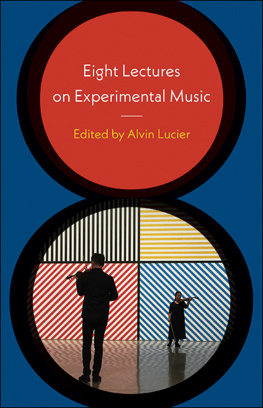
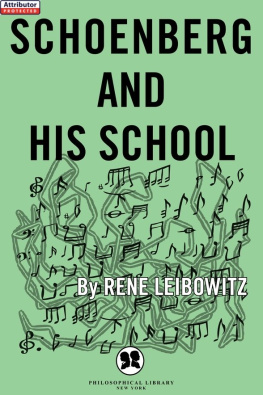
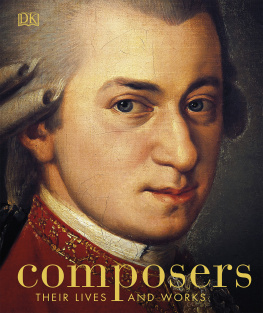
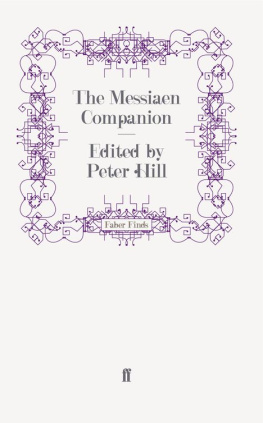
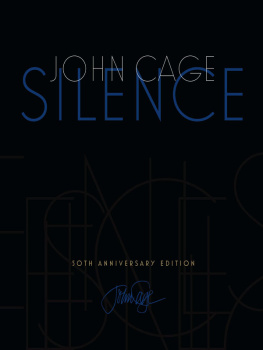
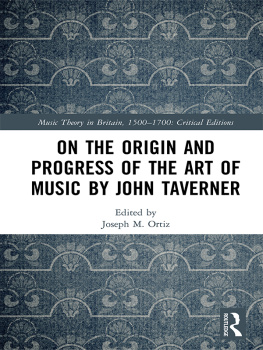
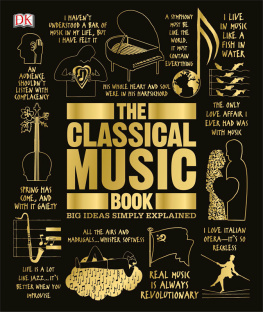
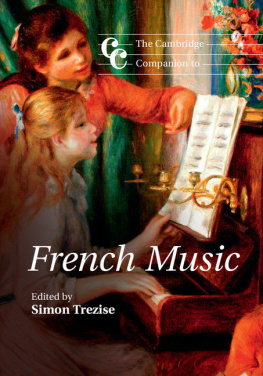
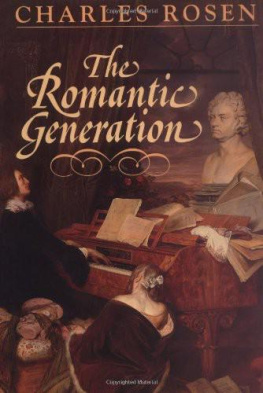


 This paper meets the requirements of ANSI/NISO Z39.48-1992 (Permanence of Paper).
This paper meets the requirements of ANSI/NISO Z39.48-1992 (Permanence of Paper).